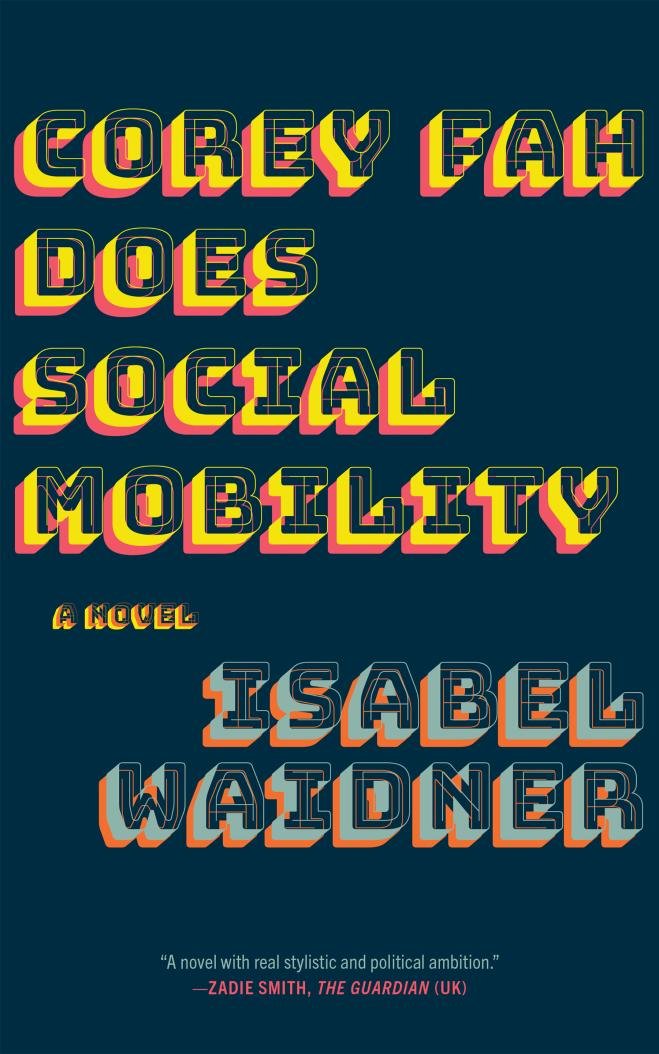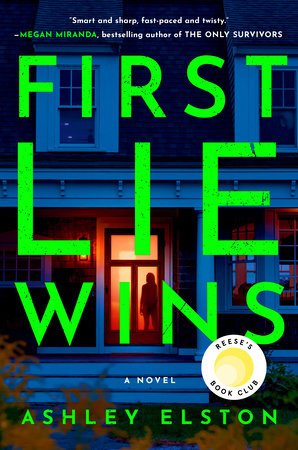I love television; I do. I love great television, and sometimes I love bad television. What I don’t love is when I realize I have lost hours, or days, or much of a week, to television I’m not even paying attention to. I love rewatching something good, but sometimes I realize I am literally trying to kill time — my mood is maybe not great, I’m struggling a little, and I just want the day to be done.
So I decided to watch less television and read instead, and I have had a month, I tell you. I’ve been sharing thoughts on books over on Instagram stories, but that’s intentionally a fleeting thing, so I decided to come over here and put down the reading list from January. Some of these are already out; some are coming out soon. I noted their release dates if they’re not already out.
Come and Get It, Kiley Reid (fiction) (Bookshop)
This is where I admit that I started and failed to finish the audiobook of Reid’s Such A Fun Age a couple of years ago, not because I didn’t like it, but just because sometimes I get out of the car and whatever audiobook I’m listening to just doesn’t get finished, it’s weird. I have to watch for it, because I am about a quarter of the way through the audiobook of Martyr!, which is not only an intoxicating book; it is narrated by Arian Moayed, who played Stewy on Succession, who is an actor I really love (and am shamelessly kind of hot for), who offers a hell of a performance and has a great voice to listen to. But if I don’t get in the car for a while, I could definitely fail to finish it.
Aaaaanyway, all this to say that Reid’s new book, Come and Get It, is really good and absorbing. I wrote a whole thing about it for NPR, though, so I’m just going to shuffle you over there for more.
Corey Fah Does Social Mobility, Isabel Waidner (fiction) (February 6) (Bookshop)
There are, in the world, people who are extremely comfortable with surreal-feeling fiction and people who are not. I am often the latter, which is why I am so glad I read this trippy-ass book. It’s about Corey Fah, a novelist who wins a prize, but it turns out the prize is a UFO, kind of, and they have to catch it in order to get money. They end up encountering a deer with extra feet and eyes who goes by the name of Bambi Pavok, who kind of is and kind of is not the Bambi you know, and there’s a strange cable show about wormholes, and there are actual wormholes. The funny thing is that by the end of the book, its thematic ideas about alienation and othering and yearning for love are completely clear, even though if I try to offer a literal explanation of the plot, it sounds like I am choosing words at random. I loved reading it, and I loved the newness of it, and I was quite moved by it.
Interesting Facts About Space, Emily Austin (fiction) (Bookshop)
Emily Austin’s first book, Everyone In This Room Will Someday Be Dead, was told from the point of view of Gilda, a young woman who was very anxious about death. To some degree, Interesting Facts About Space is about similar themes, especially anxiety, and the main characters do feel like they could be cousins. But this is the story of Enid, a queer true-crime obsessive who works at NASA (or a NASA-like organization) and wants very much to find love of a kind that means something to her — other than with the mother she loves, who also struggles with depression. When Enid feels her anxiety growing, she calls and recites the titular interesting facts about space to her mother on the phone. Austin is a really insightful and funny writer, and the voices of her characters are needle-sharp.
The Fury, Alex Michaelides (fiction) (Bookshop)
This book is so much fun. On the surface, it closely resembles Glass Onion and its inspiration, The Last Of Sheila. It’s about a glamorous actress who invites those closest to her to her Greek island for a getaway — including her dear friend Elliott, who is our narrator and tells us from the beginning that unfortunately, this weekend ends in murder, and he will explain how that came to happen. At the end, I admit I thought, “Okay, maybe one too many twists, you playful devil,” but that’s not a terribly bad feeling to have at the end of a book. I devoured it in an evening.
Get The Picture: A Mind-Bending Journey Among The Inspired Artists and Obsessive Art Fiends Who Taught Me How To See, Bianca Bosker (nonfiction) (February 6) (Bookshop)
People who know me know (and hopefully tolerate) that from time to time, I read something and then will not stop bringing it up in various contexts. This examination of the art world (from an author who previously wrote about the wine world) is bewitching, entertaining, illuminating, very funny, and refreshingly open-hearted. Bosker set out to better understand questions like … how do you know something is art? How do you know art is good? Is a piece of art necessarily bullshit just because it is, out of context, indistinguishable from something that is not art? (Like a toilet?) My favorite thing about the book, though, is that Bosker tries to take in everything she hears, even from people who say things that all my defenses want to find extraordinarily pretentious and goofy. She steers clear of both contempt and undue deference and tries to listen — to artists, gallery people, buyers, critics — and think through what she’s learning. It’s just a real treat.
Dead in Long Beach California, Venita Blackburn (fiction) (Bookshop)
A significant part of my reading in January wound up being written with unusual points of view — The Fury is in a chatty second-person omniscient that I found charming and sometimes vexing; Corey Fah is sort of dreamy reportage — and this is perhaps the most fascinating example. The novel is narrated by some collection of voices (machines? robots? aliens?) from the future who are looking back on the events following the discovery by a woman named Coral of the dead body of her brother, who has died by suicide. The “we” they call themselves have a voice that’s detached and observational about humans and their foibles, and often very funny, even in this bleak moment.
Coral begins to respond to her brother’s text messages as him, unable to tell anyone that he’s gone, including his daughter. Over the course of a week, we come to understand that Coral is herself a science-fiction writer, and these voices are part of a world she created in her own work. In other words, it’s like a story of George Lucas’s life that’s narrated by Darth Vader. Fantasy and reality, and her real world and her imagined world, are very blurry, even as she moves through a very concrete week of pain and processing.
First Lie Wins, Ashley Elston (fiction) (Bookshop)
I try to keep up with the book-club books to some degree, and this one is a Reese’s Book Club Pick. (It’s remarkable to me how important this status has become; in some places, the book’s title is rendered as First Lie Wins: Reese’s Book Club Pick (A Novel). It’s in the title! The TV adaptation has been in the works since September of 2022. In other words, this is a book that’s on the move; it’s been fully embraced by a machine that can have a huge amount of power (as parts of it did in my own life). That is not a negative — it is just an observation.
The story follows Evie Porter, who’s engaged to a rich Nice Guy, but whose past is (dun dun duunnnnnn!) full of secrets. She works for a mysterious man named Mr. Smith, who sends her on various assignments, one of which brought her to her current fiance. You’ve got your twists and your turns, your betrayals and reveals, you know the drill. There is one especially great moment that really does make you think, “Okay, what the HECK is going on?” I didn’t fully love this book (I sometimes get weary when everyone in a book is kind of at least half of a jerk), but I definitely enjoyed it, and I completely understand why so many people have become enamored of it. If it sounds like the kind of thing you would like, it probably is.
How to Live Free in a Dangerous World: A Decolonial Memoir, Shayla Lawson (memoir) (February 6) (Bookshop)
Lawson writes absolutely gorgeous sentences; that’s the first thing that I can think to say about this fascinating memoir. While talking about their efforts to be gracious, more gracious than many of the white people they encounter while working abroad, they write: “I strived not to give the impression that their world tasted funny to me.” That is such a compact, clear, powerful sentence! (They’re a poet; it makes sense.)
Officially, this is a sort of travel memoir, since it finds Lawson in places around the world — among them Amsterdam, Venice, Egypt, and (perhaps in the part I thought was most fascinating) Portugal. But it’s also a memoir about race and racism, about community, about disability, about sex, about gender and gender expression … it’s dense with ideas, as well as full of those beautiful sentences. Lawson has a certainty, a way of asserting how the world works, that sometimes made me flinch and then examine my own flinching, which I think is perfectly appropriate and within the book’s intent (although I think for the most part, it is not a book where my flinching or not flinching at it would be of any interest to the author, very understandably).
A couple of books in progress and not yet finished:
Sheila Heti has a book coming out called Alphabetical Diaries (February 6), which you might have seen a version of as a project for The New York Times.
The aforementioned Martyr!, which I already love. (Libro.fm)
Fourteen Days, a collaborative novel from the Authors Guild (February 6)







